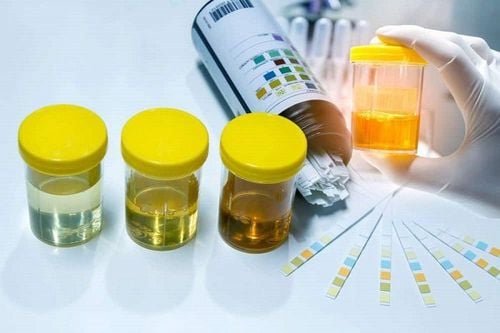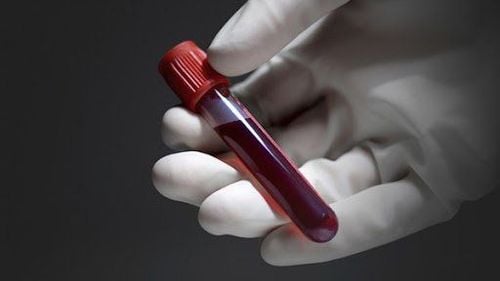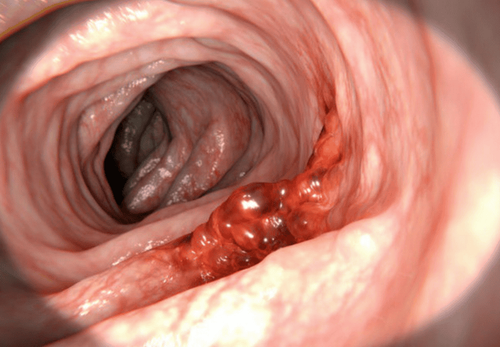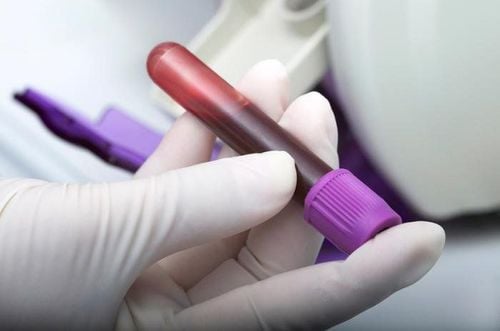This is an automatically translated article.
Phosphorus is absorbed into the blood through daily food and eliminated mainly through the kidneys. When the patient has signs of impaired kidney function, it will reduce the ability to excrete phosphorus. Combined with disturbances in bone and mineral metabolism leading to hyperphosphatemia.1. Causes of hyperphosphatemia
Kidney acute , chronic Pathology of hypothyroidism Hyperthyroidism Growth hormone deficiency Cases of microcytic deficiency Excessive use of phosphorus, bleach, vitamin D2. Signs of patients with hyperphosphatemia
2.1 Clinical signs of the patient The patient will not have obvious symptoms with moderate stage hyperphosphatemia. Hyperphosphatemia in the severe stage will have common symptoms such as: ants crawling all over the body, itchy rash, joint pain. Some non-specific symptoms may appear in patients with hyperphosphatemia: Headache, dizziness, nausea, shortness of breath, trouble sleeping,... 2.2 Tests The most accurate way to check if you have Whether you have hyperphosphataemia or not is a blood test. If the serum phosphorus test result is above 1.46 mmol/L, you have hyperphosphatemia.
Cách chính xác nhất để kiểm tra mình có bị tăng phospho máu hay không là thực hiện xét nghiệm máu
3. Dangerous complications of hyperphosphatemia
3.1 Hyperparathyroidism Hyperphosphataemia can cause patients to have hyperparathyroidism3.2 Complications on bones Osteoporosis, osteoporosis, bone spongy, bone pain, brittle bones, easy fracture. Firmware calcification. 3.3 Complications on blood vessels Vascular calcification, vascular fibrosis. Thickening of blood vessel walls, brittleness of blood vessel walls Disorders of blood vessel functions Coronary artery diseases. 3.4 Complications on the heart Myocardial fibrosis, heart failure, arrhythmia. Thick left ventricle. Myocardial infarction, stroke, high risk of cardiovascular death. Early detection and timely treatment can prevent these dangerous complications of the disease. Use of phosphate-binding drugs significantly reduces the risk of death compared with untreated patients.
4. Treatment of hyperphosphatemia

Đun sôi thực phẩm cũng là cách làm giảm đi phần nào lượng photpho có trong thức ăn
Adjusting the diet is also a factor to note, but this is only a relative measure, limiting a part of phosphorus absorbed into the blood.
Some notes when using food for patients with hyperphosphatemia:
Consult a specialist and a nutritionist about a menu containing low phosphorus. Regularly eat fruits and vegetables because they contain less phosphorus than other foods. Boiling food is also a way to reduce the amount of phosphorus in food. 4.2 Use of phosphorus-capturing drugs to treat hyperphosphataemia The most effective treatment for hyperphosphataemia is still the use of phosphorus-binding drugs. With adequate treatment according to the plan and dose prescribed by your doctor, complications from hyperphosphatemia can be reduced.
Hyperphosphatemia, if not treated promptly, will cause many dangerous complications to health. For those with a history of the above conditions, a blood test should be performed to accurately check whether they have hyperphosphatemia.
Any questions that need to be answered by a specialist doctor as well as customers wishing to be examined and treated at Vinmec International General Hospital, you can contact Vinmec Health System nationwide or register online HERE.
LEARN MORE
Treatment of hypoparathyroidism Treatment of hyperthyroidism in pregnant women Hyperthyroidism is easy to recur in women after childbirth













